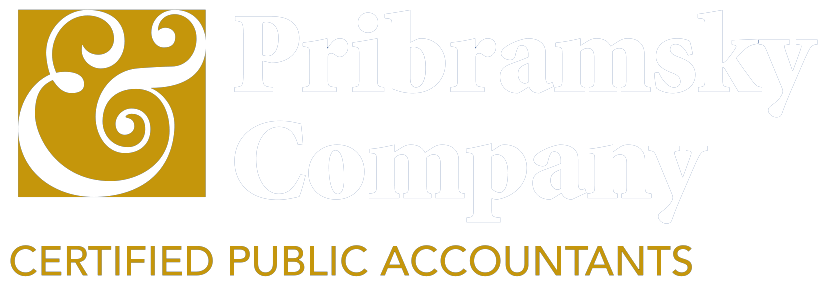Cost Segregation Accountant
Call Today: (305) 294-8137
Cost Segregation Accountant
Maximizing the financial potential of your commercial or rental real estate isn’t just about location or tenant quality—it’s about strategic tax planning. If you own property and you haven’t yet worked with a Cost Segregation Accountant, you could be leaving substantial tax savings on the table. Property depreciation, especially when applied through a cost segregation lens, can free up working capital, improve cash flow, and reduce your current tax burden.
A Cost Segregation Accountant is your behind-the-scenes financial ally who helps uncover the hidden value in your property by accelerating depreciation deductions. If you've recently purchased, constructed, renovated, or expanded a commercial or income-producing property, now is the time to evaluate the benefit of cost segregation.
The Power of a Cost Segregation Accountant
When you think of accountants, you might picture someone preparing returns or managing books. But a Cost Segregation Accountant works on a deeper, more technical level to identify ways to reduce your taxable income by classifying building components into shorter depreciation categories.
Most commercial buildings are depreciated over 39 years, while residential rental properties use 27.5 years. However, not every component of a building needs to be depreciated on that long of a timeline. Items such as flooring, fixtures, electrical systems, and even landscaping can often be reclassified into 5, 7, or 15-year property. The result? Immediate, significant savings.
Who Needs a Cost Segregation Accountant?
You should consider hiring a Cost Segregation Accountant if you:
Own or lease commercial real estate
Have recently completed new construction or renovations
Purchased existing commercial or rental properties
Want to reduce your taxable income
Are planning to sell or dispose of property soon
Even if your property investment happened in previous years, a cost segregation study can still apply retroactively through IRS Form 3115, resulting in a favorable catch-up depreciation deduction.
Tax Advantages and Immediate ROI
The primary reason real estate investors work with a Cost Segregation Accountant is the significant tax savings in the early years of property ownership. Here are the key financial advantages:
Accelerated Depreciation: Reclassifying assets means a greater percentage of your building's cost can be depreciated quickly, leading to reduced tax liability now.
Improved Cash Flow: Less tax liability means more cash available to reinvest or operate your business.
Retroactive Deductions: The IRS allows property owners to make accounting method changes and claim missed depreciation without amending prior year tax returns.
Bonus Depreciation: Under the Tax Cuts and Jobs Act, bonus depreciation has been a major incentive, allowing you to deduct 80% (2023), 60% (2024), and so on, of qualifying assets in the first year.
The IRS Cost Segregation Audit Techniques Guide outlines how the agency views cost segregation, and highlights why using a qualified accountant is key to staying compliant while maximizing benefits.
The Science Behind Strategic Depreciation
Cost segregation isn’t guesswork. A Cost Segregation Accountant uses engineering-based studies and detailed analysis to dissect a property into its components. This means reviewing construction blueprints, invoices, and change orders to classify assets correctly. Every outlet, HVAC system, sidewalk, and custom cabinet is reviewed under a tax-focused lens.
These studies often involve collaboration between accountants, engineers, and construction professionals. But it’s the accountant who ties it all together—applying tax law, depreciation schedules, and IRS guidelines to build a defensible study.
Common Property Types That Benefit
No matter what sector you’re in, if you own real estate, you stand to gain from cost segregation. A Cost Segregation Accountant is valuable to property owners in:
Multi-family housing
Retail stores and shopping centers
Hotels and hospitality
Office buildings
Restaurants and cafes
Warehouses and distribution centers
Industrial manufacturing spaces
Self-storage facilities
Each industry has its own nuances in construction and fit-outs, and the accountant's job is to navigate those specifics and unlock potential tax breaks.
How Much Can You Really Save?
While every property is different, real-world results speak for themselves. On average, a cost segregation study can reclassify 20% to 40% of a building’s cost into shorter recovery periods. That means, on a $2 million property, $400,000 to $800,000 might be eligible for accelerated depreciation.
According to the Journal of Accountancy, the net present value of those savings can be substantial when applied in the early years of ownership. If your business or investment strategy thrives on liquidity, the earlier savings from depreciation can be a game changer.
Staying Compliant While Saving More
While cost segregation can result in major savings, it’s essential that studies are prepared accurately and defensibly. That’s where a qualified Cost Segregation Accountant brings unmatched value. From audit-ready documentation to precise asset classification, your accountant ensures that your depreciation strategy holds up under IRS scrutiny.
Cost segregation is governed by Internal Revenue Code Sections 1245 and 1250, and accountants stay current with IRS rulings, court cases, and tax reform. Whether you're filing under the TCJA provisions or planning for future tax law changes, you want a professional who treats your property like an asset, not a line item.
Timing Is Everything
The sooner you engage a Cost Segregation Accountant, the greater your opportunity to reap benefits. Ideally, you should consult one as soon as you:
Acquire a property
Finish a renovation or build-out
Expand or reconfigure your business facility
Even if you're years into ownership, there's still time to catch up. The ability to "look back" and take advantage of previously unclaimed depreciation is one of the lesser-known advantages of cost segregation.
Qualified, Reliable Guidance You Can Trust
Working with a qualified Cost Segregation Accountant ensures you're not relying on shortcuts, guesswork, or outdated tax assumptions. It’s not just about increasing deductions—it’s about doing it the right way. Real estate tax law is complex, but the right accountant brings clarity and strategy to the table.
They’ll also work hand-in-hand with your CPA or financial advisor, ensuring that your overall financial picture stays in sync. If you already have an internal finance team, your cost segregation accountant becomes an asset multiplier, not a replacement.
Cost Segregation vs. Straight-Line Depreciation
The difference between straight-line and cost segregation depreciation isn’t just technical—it’s strategic. Straight-line depreciation spreads deductions evenly over decades, giving you modest tax relief.
A Cost Segregation Accountant, on the other hand, identifies opportunities to take larger deductions earlier, when cash flow and reinvestment capacity matter most. Especially in inflationary periods or economic downturns, that front-loaded cash flow can be the difference between growth and stagnation.
Start Saving with Pribramsky & Co
At the end of the day, numbers tell the story. If you want your real estate investments to work smarter and harder for you, it’s time to consult a trusted Cost Segregation Accountant.
Pribramsky & Co is here to help you tap into hidden tax advantages that could redefine your property’s financial performance. Whether you’re in the middle of a development project or managing a diverse real estate portfolio, we bring knowledge, precision, and strategy to every engagement.
Ready to improve your cash flow, reduce your taxes, and take a proactive step toward long-term financial stability? Don’t wait until next tax season to make your move.
Reach out to Pribramsky & Co today. Your property has more value than you realize—let's uncover it together.

